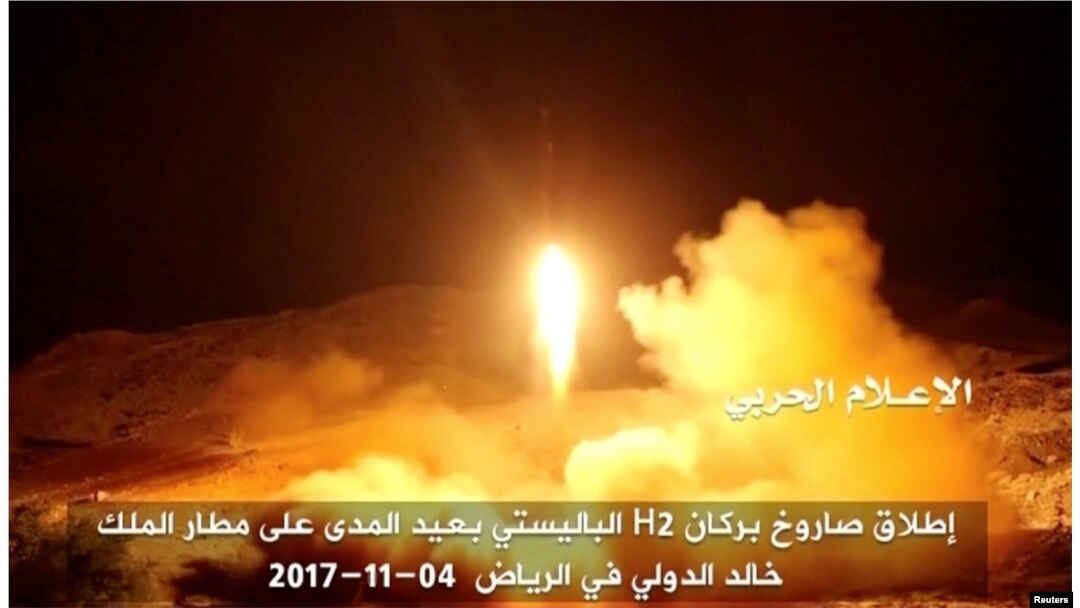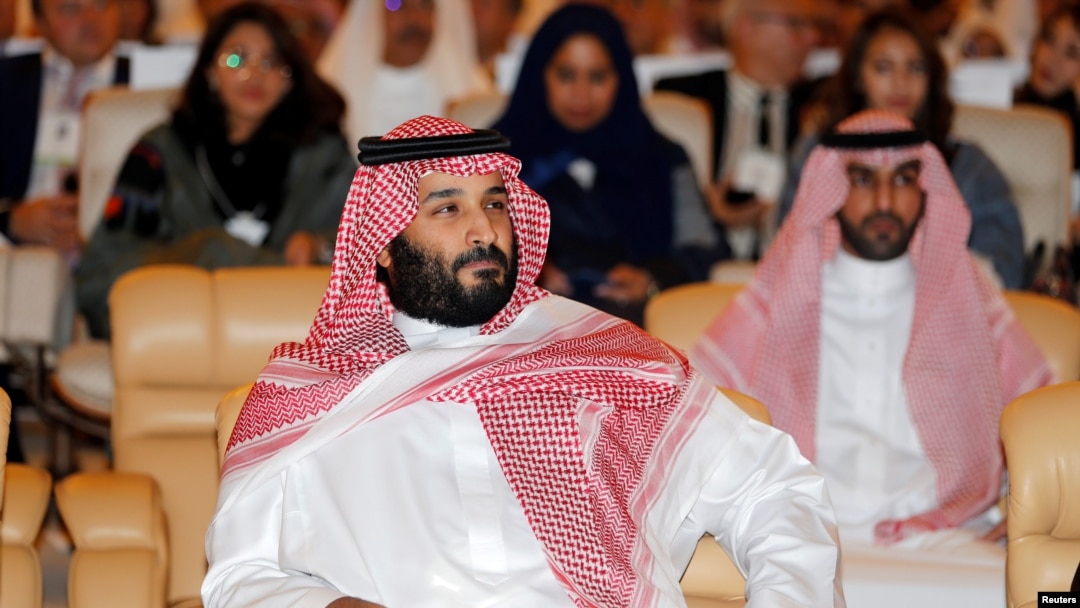The war of words between Iran and Saudi Arabia is escalating in the media and on the ground after the weekend launch of a ballistic missile from Yemen which hit near the airport in the Saudi capital, Riyadh. The Saudis accuse Iran of arming Yemen's Houthi rebels, who fired the missile.
Saudi state TV announced a fresh round of attacks by by the Saudi-led coalition forces in Yemen as tensions continued to escalate following the weekend ballistic missile launch. Saudi military forces say they shot down the missile, but shrapnel fell around Riyadh''s international airport.
Television reports said Crown Prince Mohammed Bin Salman believes that Iran's "involvement in arming the Houthi rebels with ballistic missiles is a direct military aggression (against Riyadh) and reaches the level of armed aggression against the kingdom ... and that (Riyadh) reserves the right to respond at the right time and place" to the "Iranian aggression."

An image taken from a video distributed by Yemen's pro-Houthi Al Masirah television station on Nov. 5, 2017, shows what it claims was the launch by Houthi forces of a ballistic missile aimed at Riyadh's King Khaled Airport on Saturday.
A spokesman for Yemeni military forces loyal to the Saudi-supported government of President Abdrabbu Mansour Hadi, Colonel Taher Hamid, told Saudi media he believes Riyadh has the "right" to respond to the latest missile attack on its soil.
He says that the long-range missile attack (on the Saudi capital) sets a very dangerous precedent and he believes the kingdom has the right to respond, in accordance with article 51 of the U.N. charter.
Article 51 stipulates that states "have the inherent right ... of self-defense if an armed attack occurs against a (member state of the UN) ... until the Security Council has taken measures necessary to maintain international peace and security."
In Tehran, Iranian President Hassan Rouhani responded to world condemnation of the launch in remarks Wednesday, arguing that it was a "reaction" to what he termed "Saudi aggression" in Yemen.
Iran supports the Houthis, but denies accusations that it is arming them.
Saudi military spokesman Colonel Turki bin Saleh Al-Malki called the weekend ballistic missile attack on the Saudi capital Riyadh a "barbaric aggression," and blamed Iran for supplying the missiles.
He says that the dangerous escalation by the Houthi militia group would not have occurred without the support of a nearby regional country, namely Iran, which supports the Houthi group by supplying them with ballistic missiles.
Khattar Abou Diab, who teaches political science at the University of Paris, tells VOA the conflict between Saudi Arabia and Iran has been a "proxy war" on a number of fronts, including Lebanon and Yemen, but he worries that situation could escalate quickly into something much worse.
He says the ballistic missile threat in the region is becoming more and more serious and could be the prelude to a major aggravation of the ongoing proxy war. He argues the situation could degenerate quickly if the Houthi militia group acts on its threats to attack the ports or airports of the United Arab Emirates.
The UAE is a junior partner in the Saudi-led coalition.


